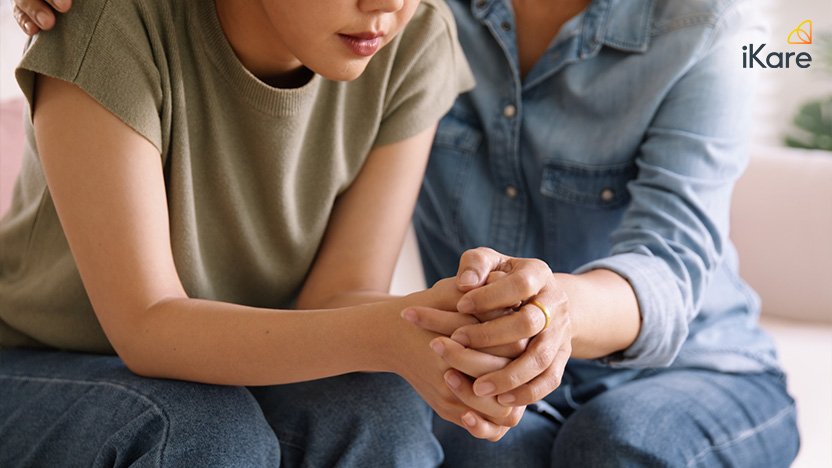
Whether you’re tending to an ageing parent, supporting a spouse facing a chronic illness, or caring for a family member with a disability, navigating the challenges of caregiving might affect our emotions and during the course of caregiving and witnessing our loved ones facing the onset of deterioration, grief may be a natural part of the experience. It can stem from witnessing the decline of your loved one’s health or the eventual loss of someone.
If you’re struggling in your journey of caregiving, be it due to fatigue or the passing of the person you’ve been caring for, take heart knowing that there are ways to navigate through this difficult time. To help you start anew, iKare, a provider of home care services in Singapore, has compiled several coping strategies you can adopt for personal healing. Continue reading on to learn more.
Recognising grief in caregiving
Grief can manifest as various emotions, from sadness and anger to guilt and exhaustion, and it’s important not to ignore or suppress them but rather to acknowledge and accept these feelings fully. Allow yourself the grace to navigate these moments without judgement, keeping in mind that caregiving is inherently emotionally challenging, and mood fluctuations are a normal part of the process.
Seeking emotional support

One of the most crucial aspects of coping with grief in caregiving is seeking emotional support. Reach out to friends, family members, or support groups who understand what you’re going through. Sharing your feelings with others who can empathise with your situation can provide immense comfort and validation, serving as a reminder that you are not alone in your struggles.
Additionally, home care services such as those offered at iKare, puts focus on tasks such as bathing, grooming, and dressing, ensuring your loved ones maintain their personal hygiene and dignity. These avenues of support can serve as a vital lifeline, affording you more time to also prioritise self-care and other responsibilities.
Self-care and boundaries

As a caregiver, it’s easy to neglect yourself while focusing on the needs of your loved one. However, practising self-care is essential for maintaining your physical, emotional, and mental well-being. Make time for activities that bring you joy and relaxation, whether it’s reading a book, taking a walk in nature, or practising mindfulness exercises. Set boundaries with yourself and others to prevent caregiver burnout and resentment, and delegate tasks to others when possible. Remember, you can’t pour from an empty cup, so taking care of yourself is not selfish, but necessary for both you and your loved ones.
Learn more: How to Deal With Stress and Anxiety in Caregiving | iKare
Coping with the pain of losing a loved one, especially as their primary caregiver, is a complex and emotional journey. But with these strategies, you can begin to find strength and help in the face of adversity.
Ready to find the support you need on your caregiving journey? Whether you’re navigating through grief or seeking assistance in providing compassionate care for your loved one, the team at iKare is here to help. Take that vital step towards the recovery and closure you seek by reaching out to us directly, or consider contacting the AIC helpline at 1800-650-6060 for additional support.

